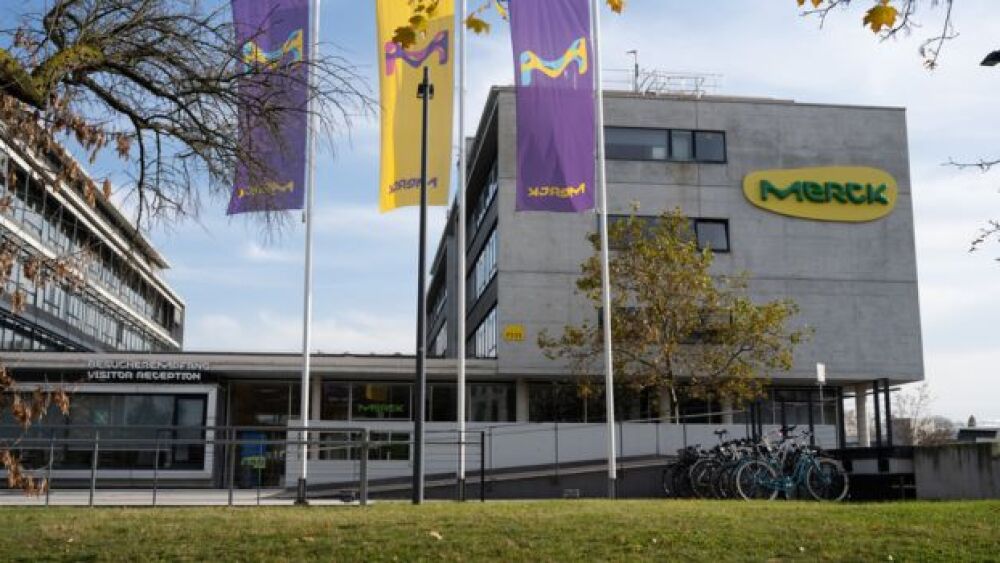The company announced Thursday it terminated its BTK inhibitor evobrutinib for multiple sclerosis, which did not meet the primary endpoints in two late-stage trials.
Pictured: A building at the headquarters of Merck KGaA in Darmstadt, Germany iStock/Anne Czichos
Merck KGaA has axed BTK inhibitor evobrutinib for the treatment of multiple sclerosis, the pharma noted in its fourth quarter 2023 results on Thursday. CEO Belén Garijo said during an investor call that the program has been officially terminated.
In December 2023, the company announced that two of its Phase III trials investigating the safety and efficacy of evobrutinib did not reach the primary endpoints of reducing annualized relapse rates in patients with multiple sclerosis (MS).
However, the termination did not seem to dissuade Garijo on the call. She noted that the company feels “pretty solid and good about our positioning in healthcare despite the setback with evobrutinib.”
Garijo mentioned that termination costs were €95 million ($103.8 million). However, this is a one-time payment. She also said there would be no prelaunch costs for evobrutinib as last year.
Merck KGaA has run into previous roadblocks regarding its BTK inhibitor. In April 2023, the FDA put a clinical hold on the Phase III trial after two MS patients showed signs of liver injury. At the time, the hold did not allow the company to enroll new patients into the trial, and the dosing of participants who had been treated with the drug for less than 70 days was stopped.
BTK inhibitors as a drug class have also run into speedbumps.
Just prior to Merck KGaA’s Phase III failures, Roche’s BTK inhibitor for MS was given a clinical hold by the FDA over some potential cases of liver injury. Specifically, two patients enrolled in Roche’s Phase III study of fenebrutinib experienced abnormal elevations in hepatic transaminase levels after receiving the doses.
Other partial clinical holds from the FDA have been placed on other BTK inhibitors.
Merck KGaA, in the meantime, has been looking to other horizons in its research efforts. In January 2023, the company expanded its colorectal cancer portfolio by licensing two assets from Inspirna for $45 million upfront. On Monday, the German company also paid $16 million upfront to C4 Therapeutics, who could see over $740 million in potential milestone payments, to form a research collaboration to discover two targeted protein degraders against “critical oncogenic proteins.”
Tyler Patchen is a staff writer at BioSpace. You can reach him at tyler.patchen@biospace.com. Follow him on LinkedIn.






